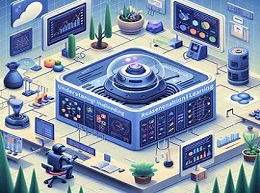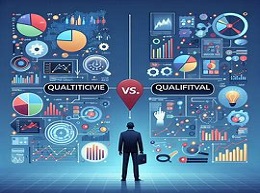AI in Agriculture: Precision Farming and Crop Monitoring

The Evolution of Agriculture and AI
Agriculture, the backbone of human civilization, has come a long way from primitive farming techniques to modern mechanization. In this digital age, another revolutionary force is reshaping the landscape of agriculture: Artificial Intelligence (AI). AI in agriculture, particularly in precision farming and crop monitoring, is ushering in a new era of efficiency, sustainability, and productivity.
Understanding Precision Farming
Precision farming, also known as precision agriculture, involves the use of technology to optimize crop yields while minimizing inputs such as water, fertilizer, and pesticides. AI plays a crucial role in precision farming by leveraging data analytics, machine learning algorithms, and sensors to make informed decisions at a granular level.
Example: Smart Irrigation Systems
AI-powered smart irrigation systems monitor soil moisture levels, weather forecasts, and crop water requirements in real-time. By precisely delivering water to crops when and where it's needed, these systems reduce water wastage and improve crop health.
The Importance of Crop Monitoring
Crop monitoring involves observing and analyzing crop conditions throughout the growing season. Traditionally, farmers relied on manual labor and visual inspections to assess crop health. However, AI-driven crop monitoring solutions offer a more efficient and accurate alternative.
Example: Drone Technology
Drones equipped with multispectral cameras and AI algorithms can capture high-resolution images of farmland. These images are then analyzed to detect signs of pests, diseases, nutrient deficiencies, and other issues early on. By identifying problems before they escalate, farmers can take proactive measures to protect their crops and maximize yields.
AI and Data Analytics in Agriculture
Data is the lifeblood of AI in agriculture. By collecting and analyzing vast amounts of data, AI algorithms can generate valuable insights that empower farmers to make data-driven decisions.
Example: Predictive Analytics for Yield Optimization
AI algorithms can analyze historical data on weather patterns, soil quality, crop rotations, and pest outbreaks to predict future crop yields. Armed with this information, farmers can adjust their farming practices to optimize yields and minimize risks.
The Role of AI in Sustainable Agriculture
Sustainability is a growing concern in agriculture, with increasing pressure to reduce environmental impact and preserve natural resources. AI technologies offer innovative solutions to address these challenges.
Example: Precision Application of Inputs
AI-enabled precision farming techniques enable farmers to apply fertilizers, pesticides, and other inputs with pinpoint accuracy. By targeting specific areas of the field based on soil conditions and crop needs, farmers can minimize chemical usage, reduce runoff, and mitigate environmental pollution.
Overcoming Challenges and Adoption Barriers
Despite the potential benefits, the widespread adoption of AI in agriculture faces several challenges. These include high initial costs, technical complexity, data privacy concerns, and the digital divide in rural areas. However, efforts are underway to address these issues and make AI technologies more accessible to farmers worldwide.
Embracing the Future of Agriculture
AI is revolutionizing agriculture by enabling precision farming and crop monitoring on a scale never seen before. From optimizing resource use to enhancing crop resilience and sustainability, AI holds immense promise for the future of food production. As technology continues to advance and barriers to adoption are overcome, the integration of AI into agriculture will become increasingly commonplace, ensuring a more efficient, resilient, and sustainable food system for generations to come.














